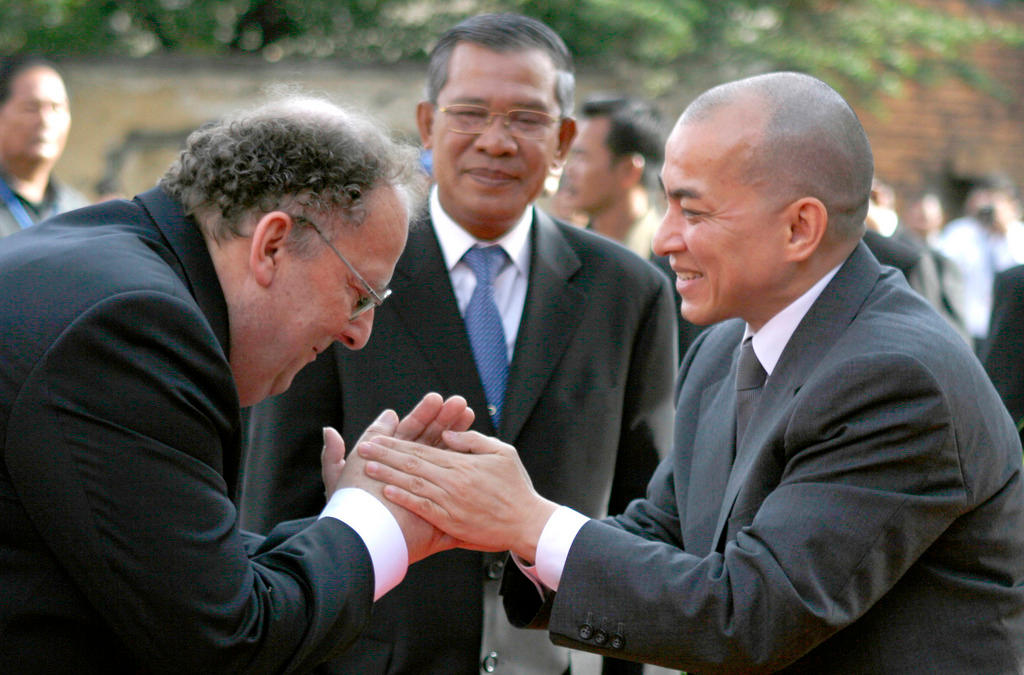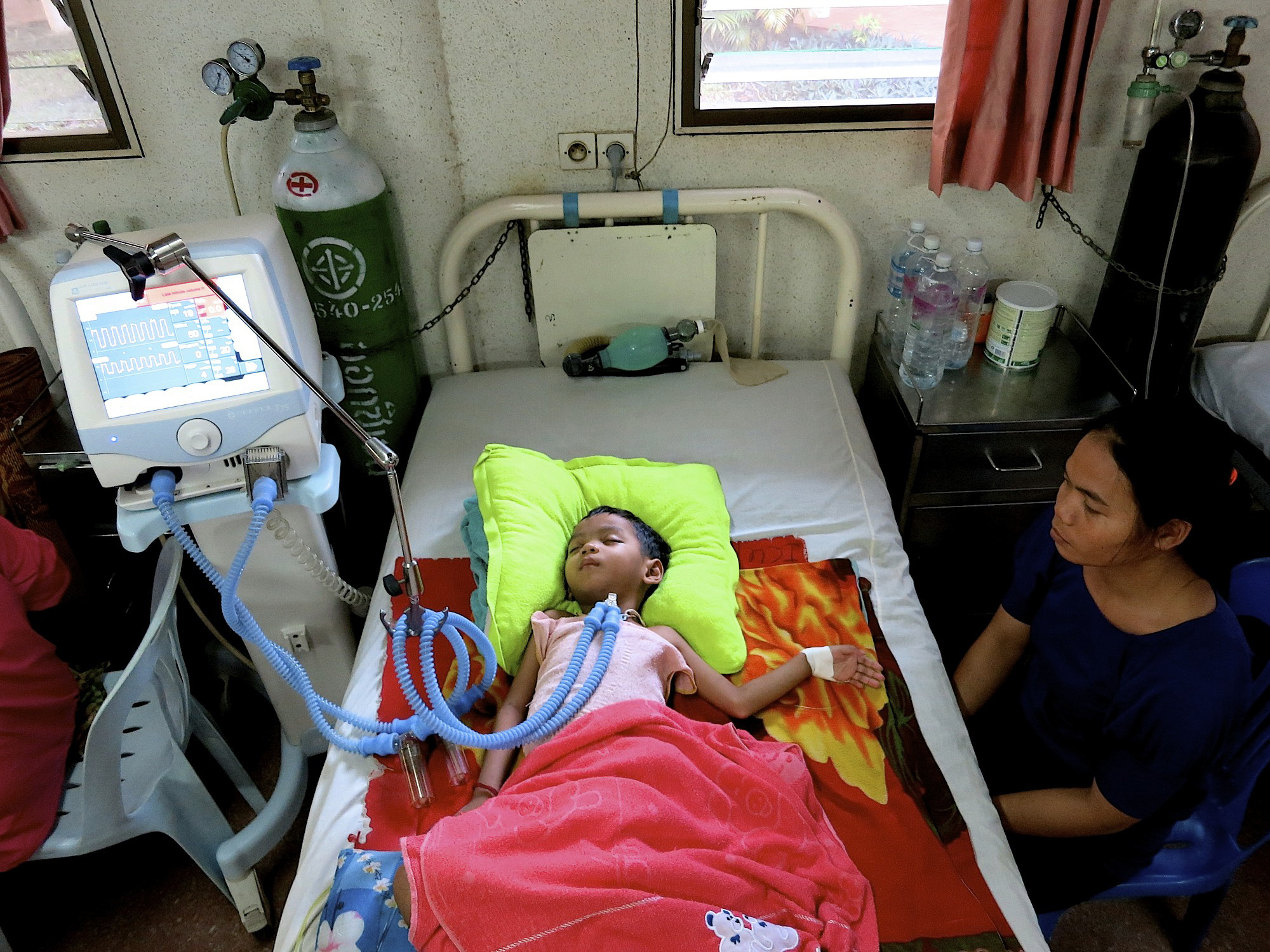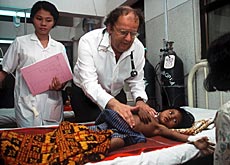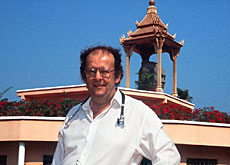Swiss children’s doctor honoured by Cambodian king

Beat Richner, a Swiss paediatric doctor and cellist, has been honoured by the King of Cambodia for his life’s work. Richner, 70, has built five children’s hospitals in the southeast Asian country.
The sustainable continuation of the Kantha Bopha hospitalsExternal link, which treat sick children for free, is of great importance for Cambodia’s health system, said King Norodom Sihamoni on Wednesday at a ceremony for the 25th anniversary of the hospitals.
Zurich-born Richner, also well known in Switzerland by his nickname of Beatocello, sadly could not be present, the hospital foundation said in a statement. He fell very ill a couple of months ago and had to return to Switzerland for treatment.
Richner first went to Cambodia in 1974, sent by the Swiss Red Cross to work at the Kantha Bopha Children’s hospital in Phnom Penh. This had been established by former king Norodom Sihanouk in 1962 after one of his daughters, Kantha Bopha, died of leukaemia.
The Swiss paediatrician was forced to leave when the Khmer Rouge took power in 1975. He was invited back to Cambodia at the end of 1991 and moved to Phnom Penh in 1992, where he rebuilt the Kantha Bopha hospital. It reopened at the end of 1992. Since then several more institutions such as maternity clinics have been built in Phnom Penh and Siem Reap.
Plan for the future
“In public hospitals, everyone pays. In private ones, it’s even more expensive,” Richner told swissinfo.ch in 2013. “That’s why 3,000 adults leave every day to get treatment in Vietnam or in Thailand, while the richest ones go to Singapore or Paris. But with children, you have to be very quick. Even Prime Minister Hun Sen [the country’s strongman since the 1980s] brings his grandchildren to us.”
The main health problem remains tuberculosis, which affects about two-thirds of the Cambodian population – the highest rate in the world. “It’s a direct consequence of the Khmer Rouge regime, with its 300 prisons and torture centres,” Richner explained.
Richner is no longer able to act as director of the hospitals, but the foundation said he had agreed a strategy years ago that would enable the work to continue.

In compliance with the JTI standards
More: SWI swissinfo.ch certified by the Journalism Trust Initiative



You can find an overview of ongoing debates with our journalists here. Please join us!
If you want to start a conversation about a topic raised in this article or want to report factual errors, email us at english@swissinfo.ch.